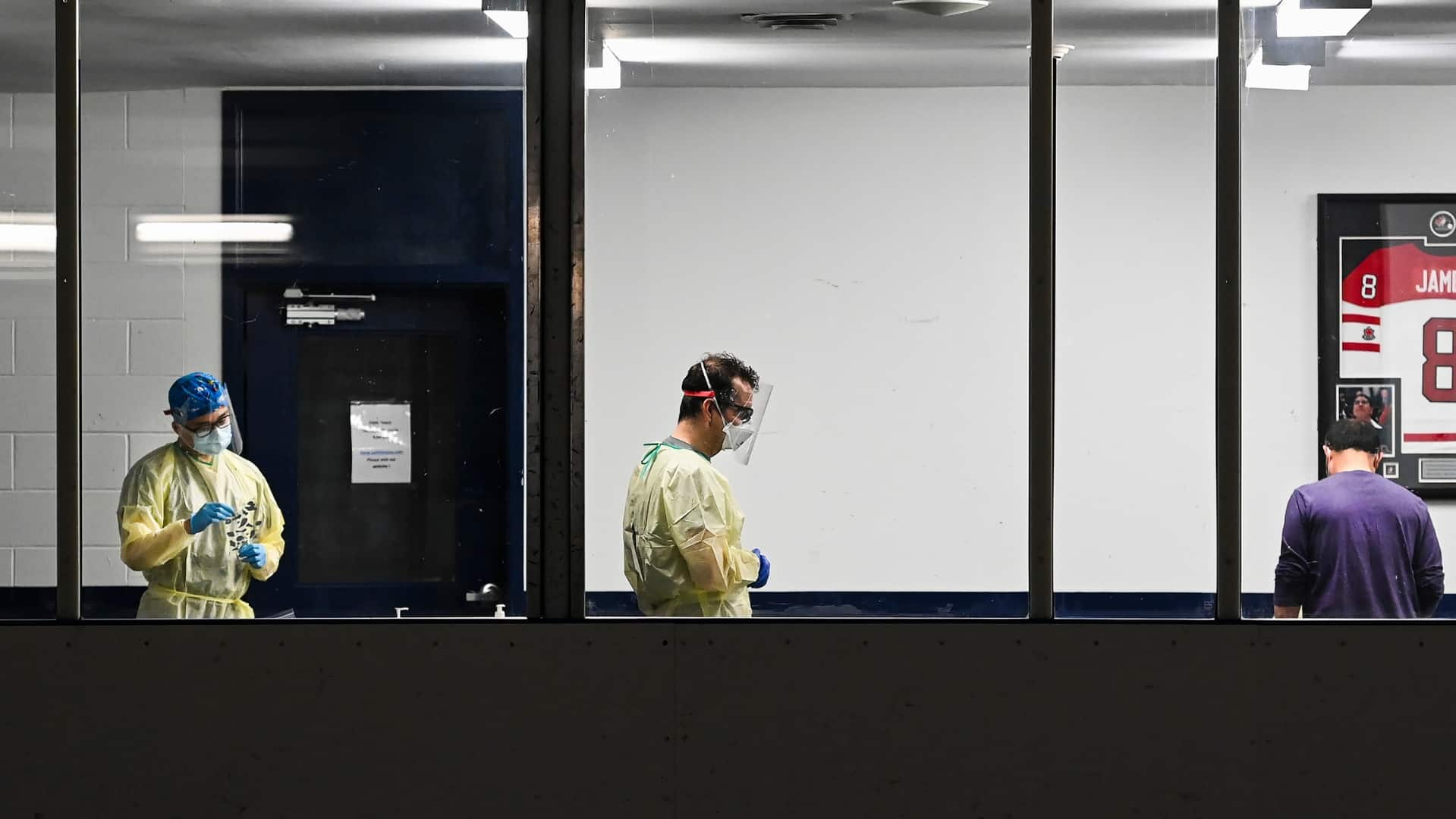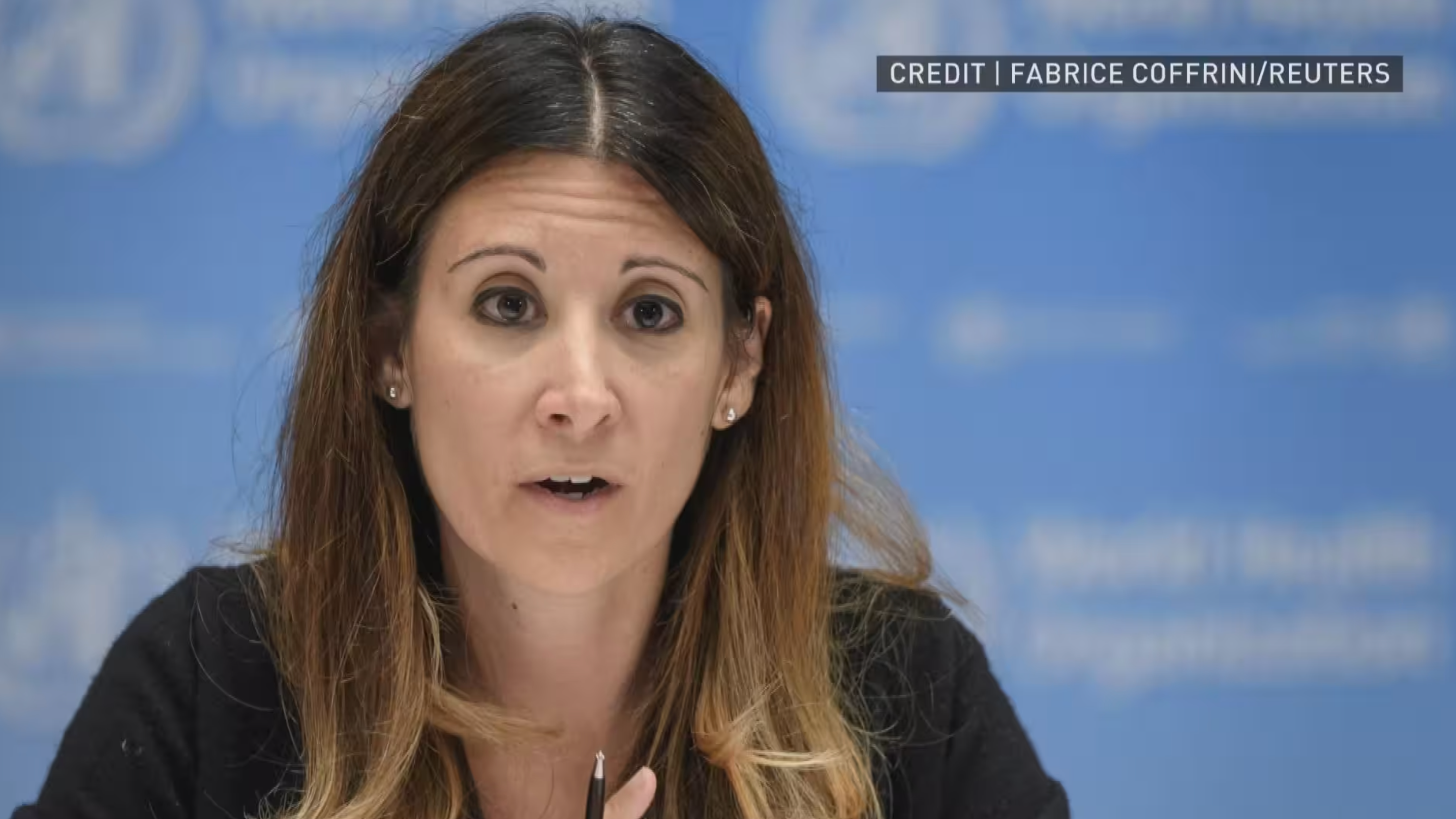This is an excerpt from Second Opinion, an analysis of health and medical science news emailed to subscribers weekly. If you haven’t subscribed, you can do that by clicking here.
For close to three years, scientists have been tirelessly striving to unravel the mysteries of long COVID — while a growing number of people are struggling with its lingering, life-altering symptoms.
It’s formally known as post-COVID-19 condition, a constellation of 200 or more medical issues that can linger or kick in months after an initial infection, ranging from fatigue to shortness of breath to a sense of “brain fog.”
For some, long COVID can amount to a few months of frustration. For others, it leads to debilitating health impacts that don’t ever seem to resolve. That range of possibilities leaves many sufferers wondering: How long does long COVID actually last?
A new, large-scale study out of Israel is the latest research digging into the spectrum of symptoms, who’s impacted, and for how long.
Published in the British Medical Journal on Wednesday, the peer-reviewed research looked at nearly two million medical records, and matched up around 300,000 people who had lab-confirmed infections with another 300,000 who didn’t test positive for SARS-CoV-2.
The researchers found that various types of health issues after a mild case of COVID lingered for several months, but cleared up within the first year after an infection.
Certain symptoms, including weakness and difficulty breathing, were more likely to persist.
“There are patients who are experiencing long COVID symptoms for a year, and their life changes, and they suffer — we do know that,” said Dr. Maytal Bivas-Benita, a senior researcher at KI Research Institute in Kfar Malal, Israel.
“But when we look at this large population and we look at their medical records, what we see is a small number of symptoms that last, and we see that they decrease with time.”
WATCH | Most long COVID symptoms clear up within a year, new research suggests:
New research out of Israel suggests most symptoms of long COVID clear up within a year, but some — like weakness and trouble breathing — are more likely to persist.
Breathing issues, weakness more likely to persist
The research looked at dozens of different health impacts linked to long COVID including rashes, dizziness, hair loss, heart palpitations, chest pain, abdominal pain.
The team also divided their findings into two time frames: the first three to six months after an infection, and the next six months.
The most frequent post-COVID health issue? Difficulty breathing, according to the study.
But it was far from the only common complaint. Others, including hair loss, lingered only in the early months after an infection, the findings suggest, while breathing issues, weakness, dizziness and a sense of brain fog were among those that persisted for up to a year.
“They also looked at [being] vaccinated versus not,” said University Health Network clinician-scientist Dr. Angela Cheung, who treats long COVID patients at a clinic in Toronto. “And those who got vaccinated also have less symptoms, specifically the shortness of breath issue.”
It’s not the first study to suggest vaccination can reduce long COVID risks. Earlier American research, published in the journal Nature Medicine last May, found that vaccination may reduce the probability of long COVID by roughly 15 per cent.
Findings don’t include Omicron
Indeed, the research — like all scientific studies — has its strengths and weaknesses.
The large amount of medical records gave the team the ability to compare people with SARS-CoV-2 infections to an uninfected control group, so they could match subjects based on factors like their age and pre-existing health conditions. Doing so allowed the team to tease out which symptoms were likely triggered by the infection itself.
“You want to see the difference that COVID added,” said Barak Mizrahi, another senior researcher with the KI Research Institute, who worked on the study.
On the flip side, his colleague Bivas-Benita stressed that the use of medical records could also mean the results are an underestimate of people with unresolved health issues, since those who didn’t seek medical attention weren’t included. (The researchers also excluded hospitalized patients, to focus on mild infections.)
In the paper, the researchers also noted there may have been under-reporting of symptoms in the later periods of the study.
And crucially, the study period only stretched from March 2020 to October 2021, so the findings don’t include the currently circulating Omicron variant that sparked a huge wave of cases in Canada in early 2022.
“This study was mainly looking up to the Delta variant time frame, and not Omicron,” Cheung said.
‘People do improve over time’
Though the data may be from earlier in the pandemic, several Canadian long COVID researchers — who weren’t involved with the study — say it adds yet another piece to the puzzle.
“Yes, it’s retrospective, yes, it’s from medical records, but what it’s showing us is that people do improve over time, which is an important thing for people to remember,” said Cheung, who also added some of her patients have been coping with post-COVID health impacts for more than two years.
Most important, says McMaster University immunologist Manali Mukherjee, is the Israeli team’s use of a control population of those who were uninfected, within a large sample size.
“This is exactly the kind of study that you need,” she said.
The findings follow Mukherjee’s own research, published in the journal European Respiratory Medicine last fall.
Using a much smaller sample of roughly 100 patients in Canada, Mukherjee’s team showed that roughly three-quarters of those infected with SARS-CoV-2 recovered within a year, regardless of their illness severity, while others faced ongoing symptoms of coughing, fatigue and difficulty breathing.
More research is needed to understand the scale and burden of long COVID and how to help with patient rehabilitation, says the World Health Organization’s Maria Van Kerkhove.
But that study was also limited due to the small sample size and, much like the Israeli paper, only looked at a time period before the arrival of Omicron.
Mukherjee’s research also found that patients with persistent symptoms had antibodies associated with autoimmune illnesses, and raised levels of cytokines — small proteins that are a key part of the body’s cellular communication network — which can trigger inflammation.
In a call with CBC News, Mukherjee — herself a sufferer of long COVID — said that’s just one of many possible mechanisms being explored to explain the range of long COVID symptoms, while others are looking at possible ripple effects from issues like small blood clots.
“The reason you have so many different theories is because you have so many different presentations of this,” she said.
Rates of long COVID likely dropping
Many presentations, different time frames, and a range of severity — all those factors make studying long COVID a challenging proposition.
The new Israeli research notably avoided any breakdown of exactly what per cent of people recover within a year, and what per cent don’t. Doing so, the researchers said, wasn’t the goal, nor something that’s easy to do given the broad spectrum of post-COVID illness.
So far, there’s a big ballpark of how many people are being affected. The World Health Organization (WHO) maintains around 10 to 20 per cent of people infected by SARS-CoV-2 may go on to develop symptoms that can be diagnosed as long COVID. Other estimates over the years have ranged from a small percentage of cases to upward of 30 or 40 per cent.
As CBC News previously reported, a growing body of research suggests, reassuringly, that rates of long COVID are now lower than previously thought, likely thanks to rising levels of immunity through vaccinations.
Nearly two years into the COVID-19 pandemic, doctors and health experts are searching to find a cause and treatment for long COVID, while patients are simply fighting for their recovery.
Early findings using self-reported, app-based data from a team in the U.K. found a reduction in odds of long COVID with the Omicron variant compared to Delta.
Similarly, a Canadian COVID survey showed that while 26 per cent of adults reported symptoms for at least three months post-infection before December 2021, that dropped to 11 per cent after December 2021 — though in both cases, self-reported data comes with limitations, and neither contains a year or more of patient reports to show longer-term impacts.
With so much left to understand about this condition, the WHO is calling for ongoing global funding and research.
“There is much more work to be done in this space including recognition, research, and rehabilitation,” said the WHO’s technical lead for COVID-19, Dr. Maria Van Kerkhove, in response to a CBC News question on Wednesday.
Katy Mclean, a 44-year-old Vancouver resident who has been grappling with an array of long COVID symptoms since catching the virus in September 2020, hopes any studies showing that the majority of people recover won’t dissuade researchers from further studying this condition.
More than two years after she first fell ill, Mclean still struggles with fatigue and weakness, relies on a walking stick, and hasn’t been able to return to work.
“My greatest concern would be that the pandemic continues and more and more people end up in my shoes — and there isn’t an answer,” she said.








More Stories
Global measles cases nearly doubled in one year, researchers say
How to make conversations with aging parents a little less awkward | CBC Radio
N.S. mom calls for better ultrasound access after private clinic reveals twins | Globalnews.ca